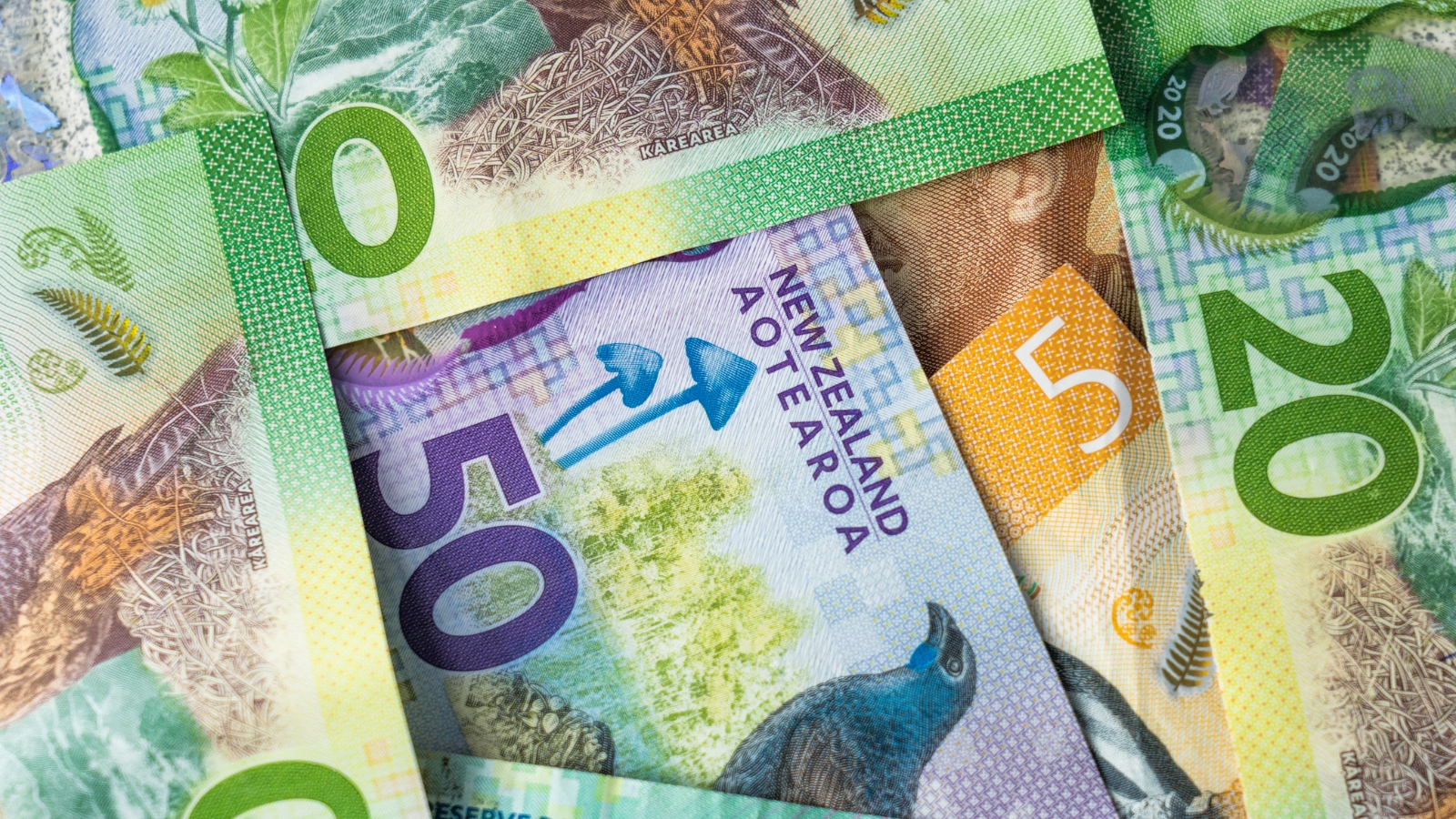Feature article
Is there a capital gains tax in NZ?
Yeah, na - it’s complicated. Let’s take a closer look.
Last updated: 2 May 2024
Chances are you’ve heard the phrase ‘capital gains tax’ countless times in the last few years. This particular tax has long been a political hot topic thanks to New Zealand’s skyrocketing property prices and increasing inequality.
But what does the phrase ‘capital gains tax’ actually mean? And is there a capital gains tax in NZ?
What are capital gains?
When you buy and own an asset like property or shares, that asset may increase in value - capital gains are the profit you make from selling them. For example, if you were to buy a house in Auckland for $1 million and sell it for $1.1 million your capital gain would be $100,000. Go you.
And what is capital gains tax?
Capital gains tax is simply a tax on the profit you make when you sell an asset. Each country has unique tax laws - but all countries in the OECD (except for one) have a comprehensive capital gains tax that applies to most appreciating assets
Usually when we talk about a capital gains tax in New Zealand we discuss it in relation to property, but capital gains taxes can apply to things like cryptocurrency, art, stocks, classic cars and more.
Does New Zealand have a capital gains tax?
No. New Zealand does not have a capital gains tax with the exception of the bright line rule, but we do tax capital gains as income in some instances. For example:
If you have a history of buying and selling property, you may be deemed a property dealer and have to pay tax. You’ll also need to pay if you’re in the business of selling property, whether you’re a developer or builder.
The intention rule: if you buy property with the intention of reselling it for profit you’ll have to pay tax on any profit made from the sale.
Gains on some financial instruments: tax may be payable on profit made when selling certain shares and financial instruments in some circumstances.
It’s important to draw a distinction between the way New Zealand taxes some capital gains as income, and a capital gains tax. Capital gains are usually only taxed if the IRD deems your gain a result of business activity and taxes it as they would any other business income.
New Zealand does not have a comprehensive capital gains tax.
The Bright Line Rule explained
The bright line is the closest thing Aotearoa New Zealand has to a capital gains tax, but it’s a very limited one. It requires that tax be paid on the profits of residential properties that are sold within two years of their purchase. The bright line rule does not apply to:
Commercial property.
The seller’s main home.
Inherited property.
Any properties acquired before 1 October 2015.
If you have rented out the property at some stage and used it as your main home, things can get a little tricky. If you sell the property within two years, you’ll pay tax on a percentage of the total capital gain equal to the proportion of time the property was rented out.
For example, if you have lived in a home 50% of the time and rented it out the other 50% - you may be required to pay tax on 50% of any capital gain if you sell the property within two years.
How Bright Line tax is calculated
Tax under the Bright Line is levied at your highest marginal tax rate, according to which tax bracket you’re in:
10.5% - $0 to $14,000
17.50% - $14,001 to $48,000
30.00% -
$48,001 to $70,000 33.00% - $70,001 to $180,000
39.00% - $180,000 and over.
For example, if you earn $180,000 a year, your entire capital gain will be taxed at 39%. If you earn $100,000 your entire gain will be taxed at 33% (assuming it’s less than $80,000).
Here’s a slightly more complex example:
Let’s say you earned $50,000 income from salary and $50,000 capital gains from the sale of a property that is subject to the Bright Line Rule.
The first $10,000 of the gain is taxed at 30%.
The remaining $40,000 is taxed at 33%.
If New Zealand ever does have a capital gains tax it's likely that the family home will be excluded.
How to pay tax on a Bright Line sale
If you’ve sold a property that is subject to the bright line rule you can simply complete a Bright-line residential property sale information form - IR833 as part of your income tax return. You’ll need the property title number, dates of purchase and sale and the sale price to file this return.
If you’re unsure how to return your Bright Line income speak to an accountant with experience preparing tax returns that include Bright Line sales.
Does New Zealand tax capital gains on other assets?
Generally speaking outside of the Bright Line, Aotearoa New Zealand doesn’t have any capital gains taxes, but these taxes are similar in some ways:
Kiwisaver, managed funds, index funds and Pie funds are taxed at a Prescribed Investor Rate, depending on your income. These rates are 10.5%, 17.5% and 28%. This isn’t a capital gains tax.
Income earned from crytpocurrency isn’t subject to a capital gains tax, but when you earn income after profiting from a sale, staking or mining that income will be taxed at your marginal tax rate.
Paintings, classic cars and other high value assets: if you were to buy a high value asset and sell it later for a profit, that gain would not be subject to a capital gain tax (or any tax at all) unless you bought the asset with the intention to sell it for a profit or are in the business of trading such assets.
Generally speaking, if you have an intention of making a profit from an activity, or you’re in a pattern of selling an asset for profit, any capital gains will be taxed as income. The problem is, it’s impossible to know someone’s intentions when they purchase an asset so this rule is near impossible for the IRD to enforce in many cases.
Before you buy and sell a property you should always be aware of the tax implications.
Should New Zealand have a capital gains tax?
Support for capital gains tax
Supporters of a capital gains tax believe that it would help reduce the gap between rich and poor, ensure wealth gained through capital is taxed similarly to income and encourage investment in more productive assets (like businesses). There is growing support for such a tax:
62% of the NZ public support a capital gains tax, according to a Stuff.co.nz survey of 1,000 people.
72% of accountants surveyed by Chartered Accountants ANZ supported one.
In March 2023, the International Monetary Fund urged Aotearoa New Zealand to adopt a comprehensive capital gains tax.
In February 2019, a government tax working group chaired by Sir Michael Cullen recommended that Aotearoa New Zealand institute a broad capital gains tax.
The NZ Treasury recently recommended that the National government institute a capital gains tax.
Opposition to capital gains tax
Those who oppose a capital gains tax, on the other hand, say that such a tax isn’t necessary and could end up doing more harm than good. For example, property investment advisors Opes Partners make the points that:
A capital gains tax will not improve housing affordability, according to many pro-housing investment groups.
Those who will have to pay capital gains taxes already pay the most tax & some say they’re already paying their fair share.
A capital gains tax could even worsen affordability in the short term because it will encourage investors to hold onto their properties for longer, exacerbating supply shortages.
Whether you support or oppose a capital gains tax, it’s extremely unlikely that we will get one until 2025-2026 when the next government begins its term (depending on who is voted in) and it could take much, much longer.
DISCLAIMER: The information contained in this article is general in nature. While facts have been checked, the article does not constitute a financial advice or tax advice service. The article is only intended to provide general information about capital gains taxes in New Zealand. Nothing in this article constitutes a recommendation around tax for any specific person. We cannot assess anything about your personal circumstances or your income, all of which are unique to you. Before making decisions about tax, we highly recommend you seek professional advice.
Author
Other articles you might like
-fotor-2024050283614.jpg)



